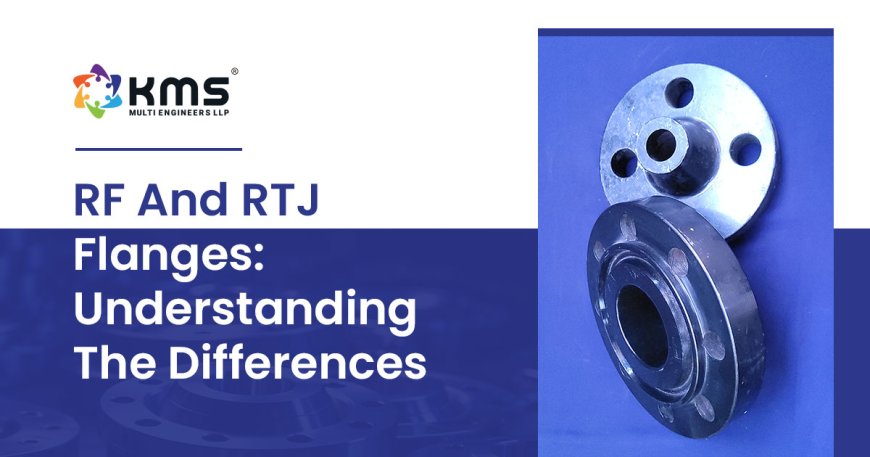RF Flanges: Key Features, Types, and Comparison with RTJ Flanges
Explore the features, types, and advantages of Raised Face (RF) Flanges, and understand how they compare to RTJ flanges in industrial applications.

Introduction to RF Flanges
Raised Face (RF) flanges are one of the most widely used types of flanges in piping systems. The key distinguishing feature of an RF flange is the slightly raised area around the bore where the gasket sits, which enhances the sealing performance. RF flanges are designed for both high-pressure and high-temperature applications, making them ideal for industries such as oil and gas, chemical processing, and water treatment. The raised face ensures a more efficient sealing mechanism when compared to flat face flanges, making them a preferred choice in critical applications.
Key Features of RF Flanges
RF flanges are characterized by the following key features:
- Raised Sealing Surface: The raised face allows for more focused gasket compression, enhancing sealing efficiency.
- Pressure Class Ratings: These flanges come in a variety of pressure ratings (e.g., 150, 300, 600, 900, and higher), making them versatile for different applications.
- Material Options: RF flanges can be manufactured from a wide range of materials, such as stainless steel, carbon steel, and alloys, allowing for corrosion resistance and durability in demanding environments.
- Compatibility with Gaskets: RF flanges are designed to work with various types of gaskets, such as spiral-wound, ring gaskets, and composite gaskets, depending on the application's pressure and temperature requirements.
- Standard Dimensions: RF flanges are manufactured according to industry standards like ASME B16.5, ensuring compatibility across piping systems worldwide.
Types of RF Flanges
There are several types of RF flanges based on their design and function:
-
Slip-On RF Flanges: These flanges are slid over the pipe and then welded, making them easy to install but not ideal for high-stress applications.
-
Weld Neck RF Flanges: With a long tapered hub, these flanges provide excellent stress distribution and are suited for high-pressure systems.
-
Blind RF Flanges: Used to close the end of a piping system, blind flanges are commonly used in systems that require future expansions or inspections.
-
Socket Weld RF Flanges: These flanges are ideal for small-diameter pipes and high-pressure applications.
-
Threaded RF Flanges: These flanges have internal threads and are often used for low-pressure, small-diameter systems.
RF Flanges vs RTJ (Ring Type Joint) Flanges
While RF and RTJ flanges are both designed to provide effective sealing, they differ in several ways:
-
Sealing Surface: RF flanges have a flat, raised surface for gasket compression, whereas RTJ flanges have a groove cut into the flange face where a metallic ring gasket is seated.
-
Sealing Mechanism: RF flanges use soft gaskets like spiral-wound or composite gaskets, while RTJ flanges use metal ring gaskets for a metal-to-metal seal, making RTJ flanges better suited for extremely high-pressure applications.
-
Applications: RF flanges are more versatile and commonly used in moderate to high-pressure systems, while RTJ flanges are preferred in extreme conditions such as oil refineries and offshore platforms where high integrity sealing is critical.
-
Cost: RTJ flanges tend to be more expensive due to their complex sealing mechanism and higher performance in demanding conditions.
Conclusion
RF flanges play a vital role in ensuring safe and reliable piping connections in a variety of industries. Their versatile design, high-pressure capacity, and efficient sealing make them a preferred choice for many industrial applications. Compared to other flange types like RTJ flanges, RF flanges offer a cost-effective solution for most applications without compromising on performance. By understanding the key features and differences, industries can make informed decisions on which type of flange suits their specific requirements.
What's Your Reaction?
























